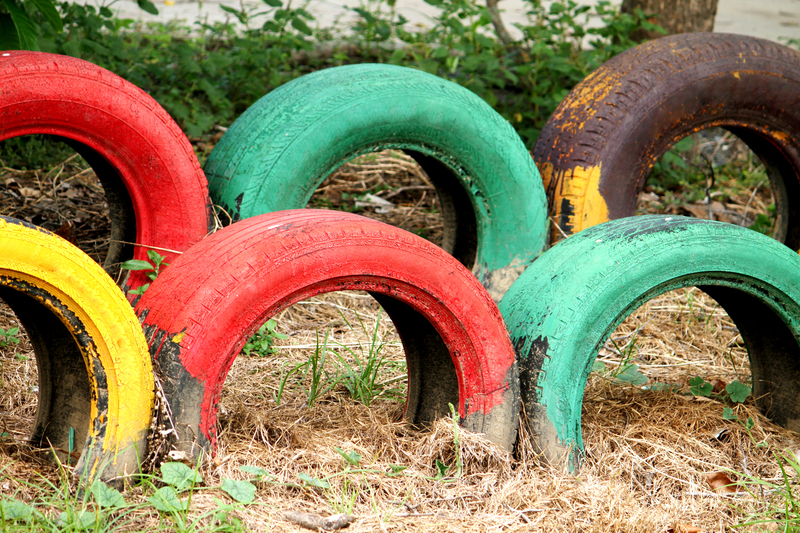Big Savings on Bulky Waste: Practical Disposal Tips
Dealing with bulky waste can be a daunting and often expensive task, whether you're renovating, clearing out the garage, or moving house. From old furniture and mattresses to broken appliances and garden debris, large items require thoughtful management. Fortunately, with the right approach, you can significantly reduce costs and even benefit the environment. In this comprehensive guide, we'll provide you with actionable, cost-saving tips for dealing with large item disposal -- ensuring you minimize expenses, keep your surroundings tidy, and even give a second life to your unwanted goods.
Understanding Bulky Waste: What Qualifies?
Before delving into money-saving tips, it's vital to understand what exactly qualifies as bulky waste. Examples of bulky rubbish include:
- Old furniture (sofas, wardrobes, tables, beds)
- Large appliances (fridges, washing machines, dryers)
- Mattresses and bed frames
- Exercise equipment
- Garden waste (branches, large cuttings, sheds)
- Home remodel debris (doors, carpets, bathtubs)
These items are generally too large for your regular trash or curbside pick-up and require special handling or additional fees. Making informed decisions on handling bulky item disposal can have a significant impact on your budget and the ecosystem.

Why Proper Bulky Waste Disposal Matters
Improper disposal can lead to fines, environmental hazards, and cluttered spaces. Adopting strategic and eco-conscious methods not only ensures the responsible treatment of refuse but also unlocks multiple benefits such as:
- Big savings on disposal costs
- Reduced landfill contribution
- Opportunities to reuse or recycle
- Supporting local charities and families in need
Let's explore practical steps to achieving affordable large waste disposal without cutting corners on legality or environmental stewardship.
1. Plan Ahead for Cost-Efficient Bulky Waste Removal
The first step to saving money on large waste disposal is careful planning. Assess the volume and type of bulky items to be removed. By grouping items or managing disposal schedules, you can often save by:
- Avoiding last-minute, high-priced services
- Maximizing single-trip removals
- Coordinating disposal with neighbors or friends for shared service fees
Proactive planning enables you to compare options and avoid expensive mistakes.
Bulk Item Pick-Up: Know Your Local Regulations
Contact your local council or waste authority to understand their bulky item pick-up programs. Many regions offer:
- Annual or quarterly free pick-up days
- Pre-booked curbside collection for specific items
- Drop-off centers for dedicated bulky waste
Taking advantage of these services can offer significant savings compared to private disposal companies.
2. Reuse, Repurpose, Donate: Zero-Cost Disposal Alternatives
One person's trash is another's treasure! Before consigning bulky trash to a landfill or costly removal service, consider these creative and charitable alternatives:
Donation
- Furniture banks and non-profit organizations often accept gently-used items for redistribution to families in need.
- Charity shops may collect appliances, beds, or wardrobes free of charge.
- Use platforms like Freecycle, Facebook Marketplace, or Craigslist to give away items to local residents.
Repurposing
- Upcycle wooden furniture into planters, storage bins, or unique decor pieces.
- Disassemble broken appliances for scrap metal or creative DIY projects.
Donating or repurposing removes items at zero cost -- and sometimes even nets you a small profit or a tax deduction!
3. Sell Bulky Items for Extra Savings
Many large household items still hold value, even if they're no longer needed. Instead of paying for disposal, earn extra cash by selling:
- Working appliances
- Antique or gently-used furniture
- Exercise equipment and bikes
- Building supplies (doors, windows, fixtures)
List items online with clear photos and honest descriptions. Consider hosting a garage sale for kitchens, garages, or entire home clearances. By selling, you not only save on bulky garbage disposal fees, but also earn back some of your original investment.
4. Recycle Where Possible
With increasing focus on sustainability, recycling is more accessible than ever. Many communities offer dedicated recycling programs for:
- Mattresses and bed frames
- Appliances (often referred to as "white goods")
- Electronics
- Scrap metal and wood
Check with your local recycling center for accepted items and any associated fees. Where possible, dismantle items for more efficient handling and maximum cost savings on bulky waste disposal.
Specialty Recycling Programs
Many retailers run take-back schemes for electronics, mattresses, and even certain furniture, letting you bring in old items for responsible recycling at little or no charge. Always ask about this option when purchasing replacements.
5. Compare Bulky Waste Disposal Service Providers
If you must pay for heavy waste removal, don't settle for the first quote. Shop around and compare:
- Traditional junk removal companies
- Skip or dumpster rental services
- Specialist large item haulers
- Local "man with a van" operators
Ask about insurance, licenses, and disposal methods to ensure your waste is managed legally and responsibly. Look for price matching and discounts for combined collections or off-peak scheduling.
6. DIY Bulky Waste Drop-Off: Save on Transport Fees
Many municipalities allow residents to drop large items directly at waste management or recycling facilities, free or for a minimal charge. If you have suitable transport, consider this approach to save on collection costs:
- Rent or borrow a pickup truck or trailer
- Team up with neighbors on a single trip
- Call ahead to confirm accepted items, hours, and fees
Remember to secure your load properly and follow facility guidelines for safety and speed.
7. Bulk Collection Events and Community Initiatives
Many communities hold periodic bulky waste collection events or neighborhood clean-up drives. These events often provide free or low-cost opportunities to dispose of large items responsibly. Check your city or community website for upcoming schedules or sign up for alerts. Participating helps keep your area clean and reduces individual disposal expenses.
8. Avoid Illegal Dumping -- It's Not Worth the Risk
While the temptation to "fly-tip" or dump items may save money in the short term, it carries hefty fines and environmental costs. Illegal bulky waste dumping is a community nuisance and a serious offense. Always use proper, legitimate channels for bulky rubbish removal.
9. Safe Dismantling to Reduce Costs and Easier Handling
The more compact your waste, the cheaper and simpler it is to dispose of. Many junk removal services charge by volume rather than per item. Disassemble:
- Couches and bed frames
- Wardrobes and large shelves
- Cardboard boxes and garden debris
This lowers the haul amount and might allow some items to go in your regular trash instead of attracting extra charges.
10. Think About Storage: Delay Is Sometimes a Savings
If you're waiting for a community event, free collection day, or have plans to sell or donate but need extra time, consider short-term storage options:
- Ask to store items in a garage, shed, or covered area
- Coordinate timing of disposal with charitable pickups
This avoids rushed and potentially expensive solutions.
The Best Tools for Bulky Waste Management
To streamline bulky waste disposal and maximize savings, equip yourself with:
- Basic tools: screwdrivers, wrenches, hammers for disassembly
- Protective gear: gloves, masks, and safety glasses
- Straps, dollies, and carts for safe movement
- Heavy-duty bags or tarps for organizing and containing debris
Having the right equipment makes the process safer and more efficient, especially for heavy rubbish removal.
Eco-Friendly Large Waste Disposal: Why It Matters
Saving money isn't the only incentive. Responsible bulky trash solutions help:
- Reduce landfill use and pollution
- Minimize greenhouse gas emissions from improper disposal
- Provide resources to communities in need
- Support the local green economy through recycling and reuse
Whenever possible, choose the most environmentally friendly bulky waste option.

FAQs -- Saving on Bulky Waste Disposal
What is the cheapest way to get rid of bulky waste?
The least expensive method is reuse -- donate or sell your items first. Next best are municipal free collection days and DIY drop-off at local recycling centers. Check all available options before hiring a private company.
How can I avoid bulky waste disposal fees?
- Donate usable items to charity or reuse centers
- Gift or sell large items online
- Break down items to fit regular trash when allowed
- Participate in bulk neighborhood clean-up events
Is it possible to recycle bulky waste?
Absolutely. Many bulky items are recyclable, including white goods, wood, and metal. Contact local centers for current guidelines.
Should I hire a professional bulky waste removal service?
If you have large, heavy, or hazardous items, or lack transport, a professional service may be the safest and most practical option. Always obtain multiple quotes for best savings.
Key Takeaways: Big Savings on Bulky Waste Disposal
- Plan ahead and use local resources for free or discounted disposal.
- Sell, donate, or repurpose items wherever possible.
- Use DIY drop-off and recycling to minimize costs and environmental impact.
- Compare professional providers and never settle for the first price.
- Avoid illegal dumping -- the consequences far outweigh any potential savings.
By applying these practical bulky waste tips, you can enjoy a cleaner home and environment without breaking the bank. Remember, every effort made to reuse, recycle, or responsibly dispose of large items is a step toward big savings and a better planet.
Ready to save on bulky waste? Start with your next project and discover just how rewarding (and affordable) responsible disposal can be!